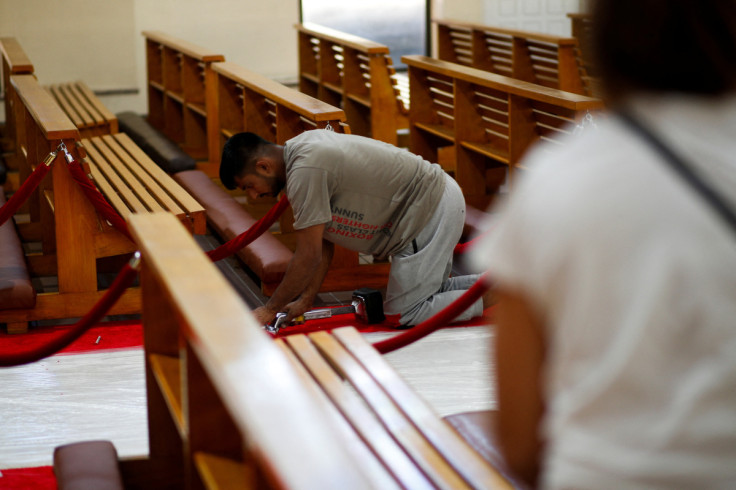Pre-Islamic Era Christian Monastery Discovered In Umm Al Quwain
KEY POINTS
- The remains of the ancient Christian monastery were found on Al Sinniyah Island
- This is the second such monastery discovered in UAE, after the one in Abu Dhabi
- Carbon dating suggests the structure could have been built somewhere between 534 and 636 ADE
In a stunning archaeological find, an ancient, pre-Islamic era Christian monastery has been discovered on the Al Sinniyah Island in Umm Al Quwain.
The emirate's tourism and archaeology department announced the find Thursday. The find was made under the Sinniyah Archaeology Project, a collaboration between the Umm Al Quwain Department of Tourism and Archaeology, the Italian Archaeological Mission in Umm Al Quwain, and the Institute for the Study of the Ancient World at New York University in New York.
The complex included a church, a prayer hall, a refectory (dining hall), and also cells for the monks to spend time in solitude, The National News reported.
Other structures found in the complex include a kitchen, a cistern for collecting drinking water, a storeroom, and an oven used to bake communion bread. An abbot's house or "bishop's palace" was also found there.
The techniques employed for the purpose of evaluation of the site included radiocarbon dating and assessment of pottery that had been excavated at the site. Carbon dating of the discovered artifacts suggests the structure could have been built somewhere between 534 and 636 ADE, i.e. the pre-Islamic era. Prophet Muhammad was born around 570 and died in 632.
Experts say this could shed new light on the history of early Christianity in the Persian Gulf. This is the second such monastery found in the Emirates, according to a report on CBS News. The first one, discovered in the 1990s on Abu Dhabi's Sir Bani Yas Island, dated back as many as 1,400 years, the report said. The monasteries disappeared after most of the natives in the area converted to Islam.
"It is an extremely rare discovery," said UAE University's prof Timothy Power, who was part of the excavation team. "It is an important reminder of a lost chapter of Arab history." "The fact that something similar was happening here 1,000 years ago is really remarkable and this is a story that deserves to be told." The professor added that the team had also uncovered glass chalices from the area, which were used for the purpose of drinking wine. This find, said Power, is a testimony to almost 300 years of Muslim-Christian interfaith harmony since no signs of destruction were found in the churches.

© Copyright 2023 IBTimes AE. All rights reserved.

















